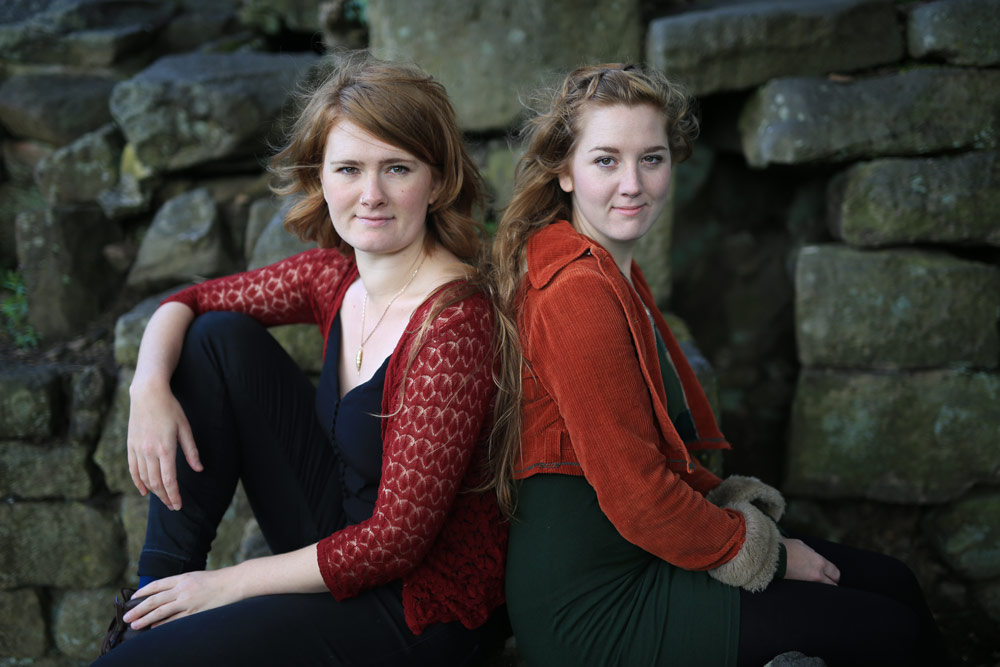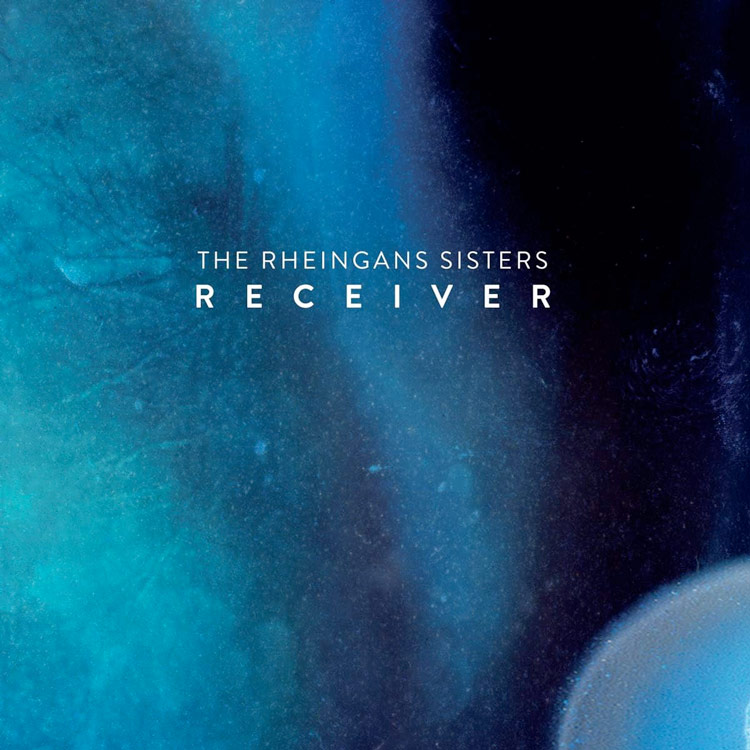THE RHEINGANS SISTERS
Receiver
There may have been a hiatus of live music for much of 2020, but the year was not fallow, with some outstanding recorded music that had been in the pipeline. Receiver, the fourth album from the Rheingans Sisters, was one of these.
Time and space might well have contrived to put hurdles in the way of its release, but not because of Covid. You’d have thought Rowan might have enough on her plate, what with the unfair concentration of talent that is the trio Lady Maisery and her own one-woman show that met with acclaim at the Edinburgh Festival in 2019. Meanwhile, sister Anna is not so much restless but, counterintuitively, finds deep musical roots wherever she travels, whether it be Northern Algeria, by way of home in Aquitaine, or with fellow music-makers in Scandinavia. But blood runs thick, as it so often does with folk families, and the firm taproot that anchors these two wild musical imaginations can be traced back to the family hearth in the Peak District, just over the moors from Sheffield, where instruments abound, and if the right one isn’t to hand – Rowan’s unique bansitar, for example – you can always get your luthier father to create one.
Rowan’s award winning songwriting is present and correct, with its sensitivity, observation and social conscience, and Anna contributes too with Salt of the Earth. Typical of the international flavour of the album, this song conveys simplicity and domestic tradition, yet its story spans continents. Rowan’s songs also hark back to the idea of the Already Home title of their second album, with themes ranging from the protection of children from the world that awaits them on After the Bell Rang, an Ulster family home shattered in The Photograph to lightness among the humdrum on opener Little Yellow Flowers.
But the songs don’t take centre stage. My feet know that, at heart, this is a dance album, yet it is utterly undanceable. Basic steps from across the continent – bourrees, polskas from Sweden, rondeaux from France – inform the tunes but don’t control them. For if this starts as dance music, it heads off on a very long leash. There are arrangements of trad tunes and there are new compositions. Anna’s brilliant Insomnia uses the insistent rhythms of a bourree d’Auvergne, to conjure unwanted wakefulness in the small hours. I suspect Anna takes some delight in introducing us in Orogen to the ‘sauts bearnais’, where ‘the dances may look random to the outsider, but they’re based on a complex sequence of steps that only the dancers and musicians know.’ That is how so much of the album feels. For your reviewer/dancer, these tunes have cart-wheeled off the possibility of the dance- floor, to become music to sit down and listen to. Take Ostbjorka, a tune pieced together from phrases heard by Anna of a summer evening in a Swedish village. Typical of the album, it starts with the conflict of an unsteady drone on one fiddle, playing off against plucked notes on the other. A haunting melody launch- es; another line picks up an unconventional harmony; there is dissonance, yet it resolves into stark beauty. This is composition that is rooted in folk tradition, but it could find a home next to Ravel’s Tzigane.
Yet, even in an album of so much invention and surprise, it is still possible for one piece to stand out. Rowan’s From Up Here, sounds timeless, like some ancient air that has echoed round hillsides and down the years. Lamenting, soaring, evocative of something out of reach, this is outstandingly beautiful. If Mackerels brought a BBC2 Radio Folk Award to Rowan in 2016 for best song, then this is what proves her exceptional talent for a tune.
The CD is brought to you with lavish hardback packaging, complemented by the work of photographer Pierre-Olivier Boulant. It’s quite a statement. There is just enough information to give you the starting points of each of the fourteen tracks, while leaving the music to speak for itself. They are not self-mythologising when they write about a ‘Rheingans version’ of one tune; while Anna may get the credit for writing the majority of the tunes, it is explicit that they are jointly arranged, and that there is a signature to how that sounds. Fiddles dominate, but you know that there will be drones, banjos and found instruments from the south west of France. These will create the sweetest of melodies contrasting with the harshness of strings used almost as percussion. Rasping bows, calling to the dancefloor, lean into the notes, bending microtones out of the strings. Some of that is challenging; it is music that will make you sit up and listen, rather than rock you to sleep. Yet there is also balm in evening serenade. Moustiques dans les Mures (Mosquitoes in the Brambles) perfectly conjures a sultry evening in the French Midi aided and abetted by Rachael Cohen’s saxophone. They have generated a sound of their own which gives them endless possibilities and will serve them well, and that has been captured in the production by Andy Bell, producer to the great and the very good of the folk world. But the last word of the album is the shuffle of feet on sprung wood on Waltz from Lozere, I would like to think recorded in some village salle de fetes in the Massif Central. And of course, it’s not just any old three time waltz; it’s asymmetric. While the audible shadows of the dancers may drift off into the evening, I suspect that this quite remarkable and ambitious collection of music will be more enduring.



